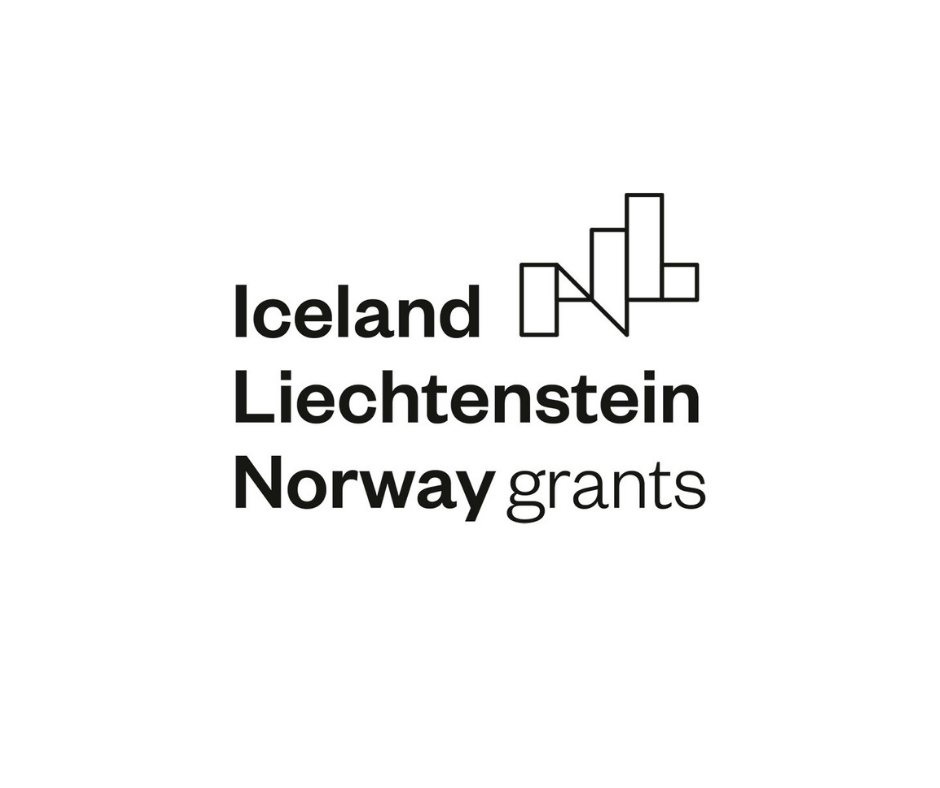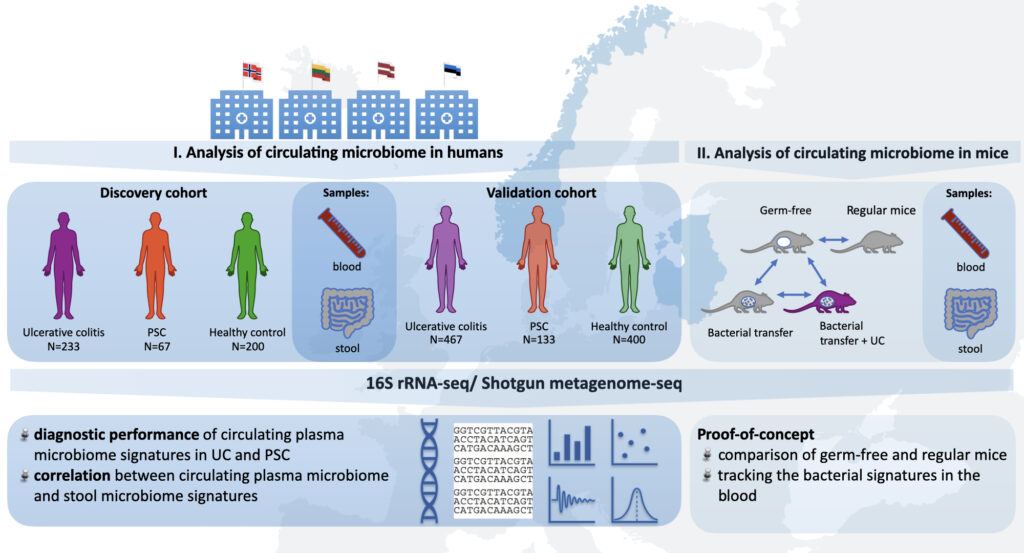
Gut -blood -liver axis
Project
Gut -blood -liver axis: Circulating microbiome as non -invasive biomarker for Inflammatory bowel disease (IBD) and Primary sclerosing cholangitis (PSC) [Blood-Biome]
Project contract no.: S-BMT-21-11 (LT08-2-LMT-K-01-060)
Start-end dates: 2021 01 01 – 2023 12 31
Principal investigator: Prof. Habil. Dr. Gediminas Kiudelis
Project promoter: Lithuanian university of Health Sciences
Project partners:
Oslo University Hospital (OUH), Norway
Latvian Biomedical Research and Study Centre (LBMC), Latvia
University of Tartu (UTARTU), Estonia
Funding source: Grant from Iceland, Liechtenstein and Norway through the European Economic Area (EEA) Financial Mechanisms 2014-2021.
Total budget: 999 990.35 Eur

Summary:
Gut microbiome has been shown to play a crucial role in ulcerative colitis (UC) and is impaired in a related extraintestinal autoimmune condition – primary sclerosing cholangitis (PSC). One of the consequences that are associated with chronic inflammation of the intestinal mucosa is increased intestinal permeability, the so-called “leaky gut phenomenon”, which might provoke bacterial translocation to the blood through the gut-blood-liver axis. Recently, it has been reported that a considerable amount and highly divergent bacterial traces can be found in human blood samples; however, circulating blood microbiome and its diagnostic potential has not been previously investigated in UC and PSC. Therefore, in this project, a multidisciplinary research team composed of clinicians, molecular biologists and biostatisticians fromNorway and Baltic countries will aim to determine circulating blood microbiome signatures in UC and related autoimmune liverdisease – PSC. This aim will be achieved through the use of very well-defined large patient cohorts, advanced metagenomic sequencing techniques, and bioinformatical analysis. In addition, with the use of a germ-free UC mice model, mechanistic insights of bacterial transfer to the blood circulation will be evaluated. The project will generate clinically relevant data on the diagnostic and prognostic value of the specific circulating blood microbiota profiles, that could benefit to the generation of new non-invasive tools in the personalized management of UC and PSC. The study team will merge existing know-how, equipment and biobank resources across four different countries in order to enable the transfer of knowledge across different institutions and promote the training of young scientists and future collaborations.

